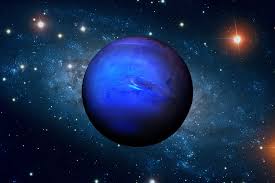
Imagine a world where, instead of sprawling landscapes, there exists a vast ocean concealed beneath a thick layer of ice. This intriguing scenario has captivated scientists as they explore some of the most promising ocean worlds in our solar system, specifically Europa, which orbits Jupiter, and Enceladus, which orbits Saturn. These moons are not just frozen balls of ice; they hold the potential for life, making them fascinating targets for scientific study.
Why Oceans Under Ice?
The icy crusts of these moons are not simply static; they offer clues that suggest dynamic processes underneath. Scientists have detected evidence of geysers and plumes of water vapor erupting from fissures in the ice. These observations indicate that there could be liquid oceans lying beneath the surface. The heat required to keep these oceans from freezing solid likely comes from the immense gravity exerted by their giant parent planets, which creates tidal forces. This internal heating could potentially sustain a liquid environment capable of supporting life.
Moreover, the presence of subsurface oceans raises compelling questions about the geologic activity on these moons. The interaction between liquid water and a rocky seafloor, similar to what we see in Earth’s oceanic ridges, may create nutrient-rich environments that are crucial for life.
What Could Live There?
Even more exciting is the possibility of life existing in these frigid waters. Traditionally, we think of life as relying on sunlight, but organisms derived from environments on Earth have proven that life can thrive in the complete absence of light. Hydrothermal vents on Earth’s ocean floor provide examples of how life can exist in darkness, using chemicals from the Earth’s interior as energy sources. Undersea regions teeming with bacteria and other microorganisms in extreme conditions offer a glimpse into the kind of life that could potentially exist on these ocean worlds.
Scientists are actively investigating whether these hidden oceans have the right ingredients for life. They are looking for signs of essential biochemical elements and compounds, such as carbon, hydrogen, nitrogen, oxygen, phosphorus, and sulfur, which are critical for synthesizing DNA and other biological molecules. The discovery of organic compounds in the plumes of Enceladus and the surface of Europa further heightens the excitement surrounding these ocean worlds.
How Do We Find Out?
To uncover the secrets these moons hold, scientists are planning ambitious space missions aimed at exploring these icy realms. Future missions could involve sending robotic spacecraft equipped with advanced instruments capable of penetrating the ice. These robots could drill through the frozen surfaces to collect samples of the ocean water beneath and analyze the chemical composition, seeking out any potential signs of life.
The process is akin to searching for hidden treasure, where the “treasure” being sought is the existence of life itself, fundamentally altering our understanding of life’s prevalence in the universe. Proposals for missions like NASA’s Europa Clipper and potential landers on Enceladus aim to explore these environments and provide more insights into their habitability.
The Big Question
The discovery of life on these ocean worlds would be revolutionary. It would open up a profound conversation about the nature of life and its distribution throughout the universe. If life can arise in such extreme and unexpected environments, it suggests that life may not be as rare as we once thought. This realization would challenge our understanding of biology and evolution, as well as our place in the cosmos.
The implications extend beyond biology; they touch on philosophy, ethics, and our understanding of our own planet. The realization that we may not be alone in the universe would forever change humanity’s perspective, inspiring a renewed sense of wonder about the cosmos and our role within it.
As we embark on this quest to explore alien oceans, we find ourselves not just uncovering the mysteries of distant worlds but also reflecting on the essence of life itself and our connection to the universe at large.
